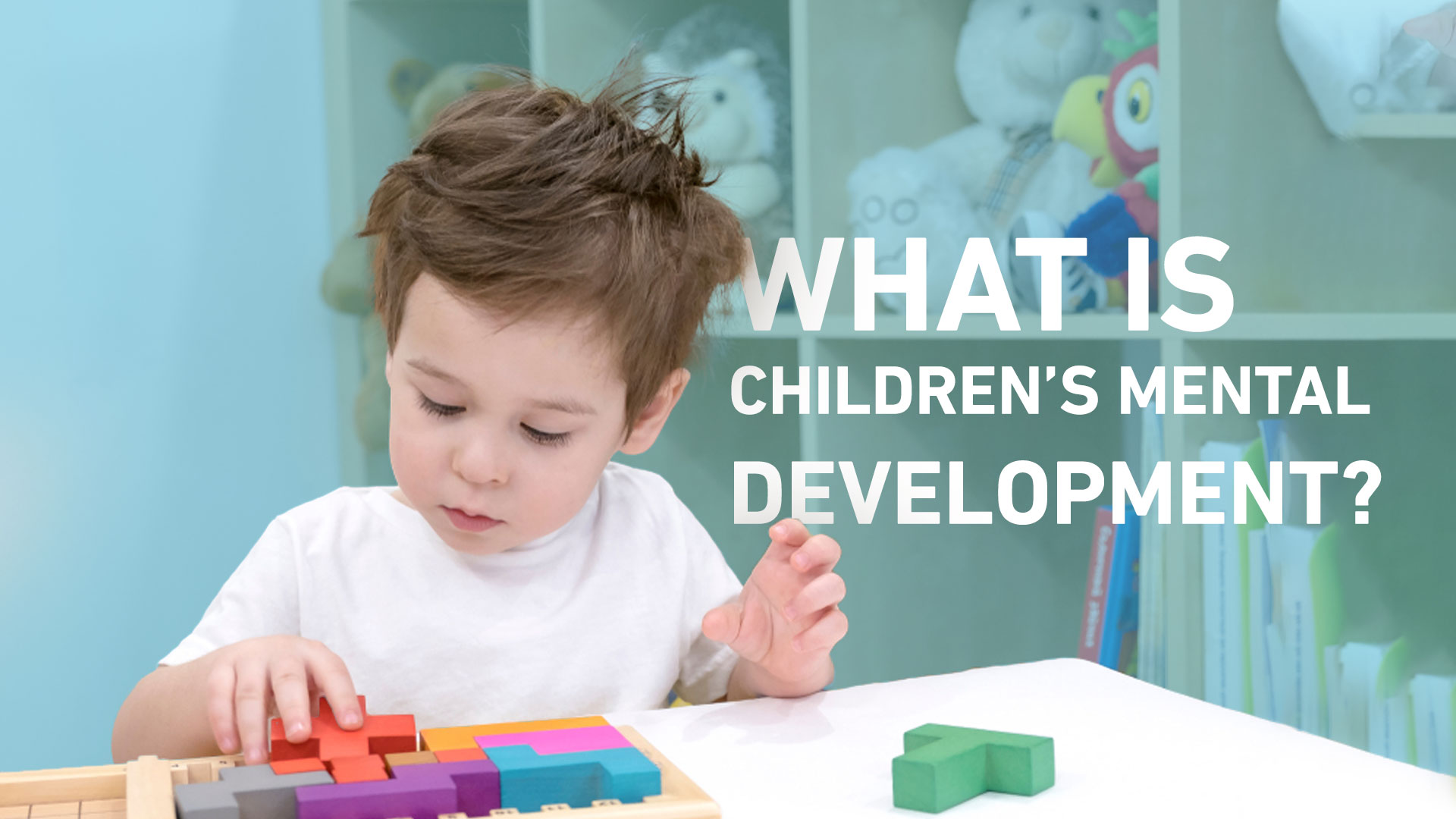
Parents often wonder if the mental development of their children is progressing in a disciplined and healthy manner.
Feelings of anxiety, fear and suspicion if there is any delay in the mental or visual abilities.
In this article, we will try to help you understand the mental development of the child, its characteristics, how it is developed and whether it is progressing normally.
Mental Development, the definition
Mental development is the progressive changes in mental processes due to maturation, learning, and experience.
In children, it is the gradual development of brain functions from birth until the age of fifteen and later.
Some scientists also suggest that mental development may begin at the stages of the formation of the fetus during pregnancy.
Mental development includes several abilities such as language, perception, movement, imagination, problem-solving, IQ, and emotional behavior.
Factors affecting the mental development of children
There are several factors that affect the type, speed and quality of your child’s mental development:
- Genetics.
- Proper nutrition.
- The social circle surrounding the child, including parents, teachers and friends.
- What the child sees, hears, reads and learns.
- Monitoring of the mental and physical health of the child by his parent.
Stages of mental development
The stages of growth advance naturally from being simple to complex according to the gradation of age as follows:
The fetus: the fetus feels touch “pressure” from the second month, and the movement begins from the fourth or fifth month and increases at night.
In the first and second months: the child can distinguish between darkness and light and begins to acquire taste skills.
From the third to the sixth month: explores and moves his limbs.
At the beginning of the sixth month: the child realizes the dimensions of his body and distinguishing sounds.
After the first year: the child begins to speak and move.
From the age of two to seven: the functions of memory, imagination, creativity and recognition of the concept of time.
Seven to eleven years old: awareness of external events matures, problem-solving skills, planning and setting future goals.
Adolescence and adulthood: mental development reaches its peak here, literacy skills, social intelligence, and communication skills.
Characteristics of mental development
In general, the characteristics of the mental development of the child are divided into main sections:
Physical growth
It includes the proper growth of the various organs of the body as well as their functions such as muscles, movement of the hand and feet, walking, jogging and playing sports.
Mental development
It is closely related to physical development, as mental functions are related to the proper development of the body, including the brain, blood circulation and nerve integrity, and any imbalance that occurs between these two components (mental and physical development) causes delays in overall growth.
Language development
Linguistic development begins with crying, then screaming without the ability to speak, then mumbling, then simple words, more complex sentences, then intonation, singing and recitation.
The flow goes:
- Understand others.
- Vocabulary.
- Combine words into a sentence.
- Pronunciation.
Emotional growth
Emotional development is the child’s ability to express feelings, whether sadness, anger, tension, anxiety, and so on.
This factor is related to the child’s mental health, and it is normal for a child’s emotions in the early years to be characterized by sharpness, rapid change and mood swings until they gradually develop to become calmer after the age of twelve.
How can the family help?
- Healthy nutrition following the appropriate food guidelines for each age stage.
- Playing sports at a young age and encouraging teenagers to exercise.
- Follow-up with a doctor in order to monitor the health status of the newborn and to discover any physical or psychological deficiency early and deal with it immediately.
- The child should feel the warmth of family, tenderness care and love. No judgment!
- Encouraging the child to express his opinion and to understand the principle of giving and take.
- Talk to the child continuously and listen to him without interruption, and share some pleasant activities such as singing, dancing, reading and playing.
- Avoid forcing the child to do anything he does not want. Listen empathetically!
- Give the child a chance to discover, because excessive care has enormous psychological damage.
- Encouraging the child to solve some of his problems on his own, to promote self-reliance and independence.
- Providing mental and entertaining games at the same time in order to support mental development.
- Communication and follow-up with the kindergarten/school in order to coordinate and follow the development of the child’s development. Learn about the procedures followed by the Rowad Al-Khaleej International Schoolsadministration in order to support parents during the mental and psychological development of their children.
- Follow up on the child’s circle of friends, they should be of similar age and inclinations in order to create a positive atmosphere that contributes to the development of his social development.
- Understand the idea that every child is unique and that the stages and schedule of growth may vary according to many circumstances.
